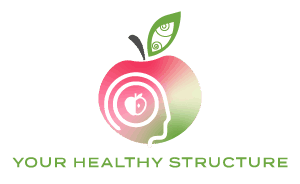This year has been quite the year. Adults have struggled with all the adult things that a pandemic could offer. However, today, I want to talk about our teens and young adults.
Teens and young adults have a unique place in their families. They have one foot in childhood and another in adulthood as they struggle to find their independence. This year of sheltering in place, social distancing, and more rules around life in general, has impacted their ability to do what they want and need to do. Teens and young adults rely heavily on their friend groups and often the opportunity to be together has been thwarted as well.
There has been a lot of grief and loss. Loss of milestones like prom, graduation ceremonies and celebrations, going to camp, taking a special trip, or learning to drive.
We have all been in this trauma together and, yet, we each experience it in our own individual way, so it often feels like we are in this alone. Teenagers and young adults often feel this very acutely. Additionally, they don’t have the skills to self-regulate their emotions, which are often felt intensely. Without the ability to express themselves adequately, many find themselves feeling anxious, depressed, and lonely.
I think it is important to teach teens and young adults how to regulate their emotions and manage the trauma’s that come their way. Learning how to be resilient is a skill they will use their entire lives.
A trauma is something that occurs in one’s life and causes shock or surprise. The brain identifies the event as something that is “dangerous”. Big trauma’s include events like divorce, a car accident, or a pandemic. Little traumas occur every day when someone hurts your feelings or makes you feel embarrassed or uncomfortable. For example, a mother may say to her daughter “You aren’t going out dressed like that, are you?”. The daughter (who just spent quite some time carefully dressing) suddenly feels “not good enough” in her mother’s critical eye. The brain registers the negative thought and the body stores the negative feeling. A similar comment or situation in the future from a friend, boyfriend, boss or family member may trigger that same negative emotion and add to the core belief of “not being good enough”.
It is important to note that not everyone responds to trauma in the same way. Some people are able to adjust and keep going, while others might get “stuck” and are unable to move past it. Learning how to create coherence and a sense of peace and calm is important for learning how to stay grounded in all situations.
My favorite tools for working through trauma and learning how to self-regulate emotions are:
- HeartMath Coherence Breathing
- Emotional Freedom Technique or Tapping
- Brainspotting
These three tools are very easy to learn and superbly effective in managing negative emotions. If you’d like to learn more, please listen to my live webinar on Tips for Teens Managing Trauma being presented July 15, 2020 at 11 a.m.-12 p.m. EST. https://yourhealthystructure.com/2020/free-webinar-tips-for-teens-in-managing-trauma/. The tape will be posted on my You Tube Channel, Your Healthy Structure. You can contact me at http://www.yourhealthystructure.com or email me at vicki@yourhealthystructure.com for an appointment. I will be happy to share handouts and spend some time teaching your teen or young adult (or you) how to use these use these techniques effectively.
Warmly,
Dr. Vicki



Find Support In Your Inbox
Subscribe to Dr. Vicki’s newsletter for updates, inspiration, and recipes that support your healthy life!
Thanks for subscribing!